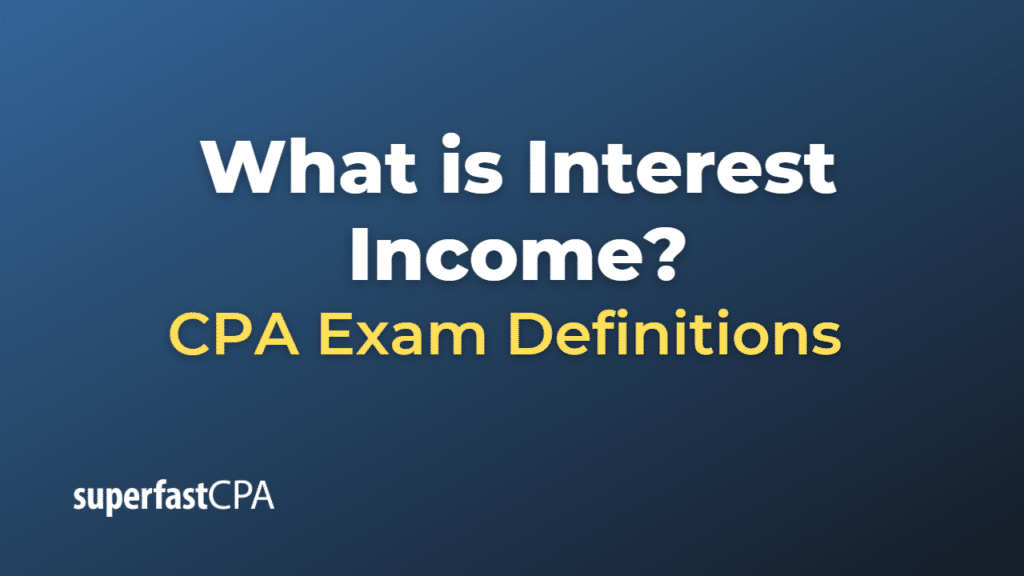Interest Income
Interest income is the revenue earned from lending money or from investing in interest-bearing financial assets. These assets can include bonds, loans, deposits, and savings accounts, among others. The borrower or the issuer of the financial asset pays interest to the lender or the investor, and this interest is considered income for the lender or investor.
Interest income is calculated as the product of the principal amount (the amount of money lent or invested), the interest rate, and the time period for which the money is lent or invested.
The formula to calculate interest income is:
Interest Income = Principal x Interest Rate x Time
Here’s what each component means:
- Principal: This is the initial amount of money that was lent or invested.
- Interest Rate: This is the rate at which interest accrues on the principal. It’s typically expressed as an annual percentage.
- Time: This is the length of time that the money is lent or invested.
interest income is important to a wide range of entities, from individuals who earn interest on their savings accounts, to businesses that earn interest on their cash holdings, to banks and financial institutions for which interest income from loans is a main source of revenue.
Example of Interest Income
Suppose you purchase a bond for $10,000 that pays an annual interest rate of 3%. The bond issuer will pay you interest on the principal amount of $10,000 each year.
Using the formula for calculating interest income (Interest Income = Principal x Interest Rate x Time), your annual interest income from the bond would be:
Interest Income = $10,000 (Principal) x 0.03 (Interest Rate) x 1 (Time in years)
This comes out to $300 per year in interest income.
If the bond has a term of 5 years, you would receive this interest income each year for 5 years, for a total of $1,500 in interest income over the life of the bond. At the end of the 5 years, the issuer would also return your principal amount of $10,000.
In this example, the interest income of $300 per year is the income you earn for lending your money to the bond issuer. This interest income would typically be reported on your income tax return and may be subject to taxes, depending on the specific tax laws in your jurisdiction.













